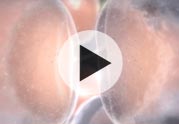It may help to know that your doctor and care team want you to understand your treatment. They want you to ask questions and know ahead of time what you might expect. You can call your care team or doctor if you have a problem after a chemotherapy (chemo) cycle.
If you don't know the answers to these questions, ask your doctor:
- What kind of cancer do I have? How is it treated?
- What did the tests show?
- What is the stage of my disease?
- Has the cancer spread?
- What will my treatment plan look like?
- Why do I need this particular treatment?
- When will chemo start? When will it end?
- What are the names of all the medications I am taking?
- What other treatments will I need?
- What is the goal of my therapy?
- What chemo side effects should I expect?
- What are serious symptoms that I need to report to you right away?
- What can I do to manage chemo side effects? How can I get as prepared as possible?
- What kind of things do you want to know about?
- When is it okay to call between chemo cycles?
- How will we know if the chemo is working?
- Will the tumor grow back?
- How often do I need a checkup?
- Can I drive myself to and from my chemo appointments?
- What would happen if I decide not to take chemo?
Preparing for Chemo Side Effects
It's important to prepare yourself for chemo side effects. Ask your doctor and care team these questions:
- How might I feel during and after the chemo treatments?
- What are the chemo side effects?
- Is there anything I can do or take to prepare for side effects of chemo?
- What can I do to help with nausea, vomiting, fatigue and other common chemo side effects?
- How will this affect my daily life and work?
Your doctor and care team want to give you answers. So ask questions when you have them. It makes their job easier, too!
-
The Chemotherapy and Infection Discussion Guide can help you understand your
risk of infectionInfection can be a serious side effect of strong chemo. Find out the factors that affect your risk of infection. Simply answer a few questions, and then print your results to share with your doctor.
Use the Chemotherapy and Infection Discussion Guide to find out more.

 Enlarge
Enlarge Email
Email Print
Print